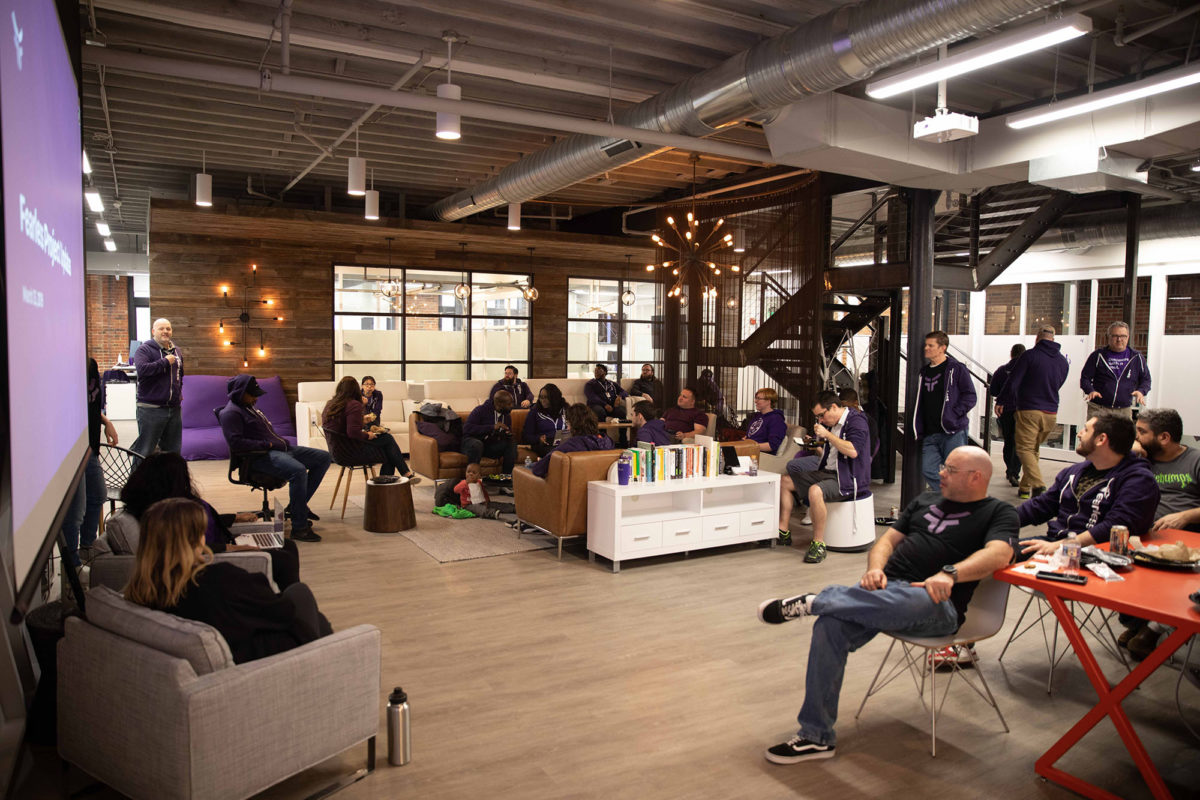When looking at a job description, it might be tempting to determine whether one is a fit with a role and company by matching up technical skills. After all, proving fluency in a programming language like Elixir or showing X number of years of front-end development helps to show how a candidate qualifies for the role.
When it comes to getting hired, though, employers are often looking for the kinds of skills that help to connect to and motivate the other humans one comes across at work, and gel with the culture that a company is creating. It’s societal shorthand by now to depict developers who resist social situations. Yet for companies seeking talent, soft skills remain an important part of the hiring equation.
For Stephanie Baggage, who is a delivery passion coach at Spark Baltimore-based digital services agency Fearless, these soft skills actually come first.
“Soft skills weigh more heavily for me than technical ability,” she said. “In my experience, a person that has decent skills but is hungry to learn and a great team player has always delivered more holistically for a team, than a tech genius who is a jerk who delivers tickets but completely destroys the team because of their poor behavior.”
When she’s hiring, she looks for the ability to work with a team, hunger to learn and passion. Technical recruiter John Priest pointed specifically to the latter point.
“Our approach is, if a candidate is passionate about a civic/social/making a difference action that makes them get out of bed each day, we can teach them any gaps they have for the technical skills,” he said. “We cannot teach them to be passionate.”
Melissa Macchiavelli told us the story of how she took a role with Columbia-based ADG Creative as director of content strategy in our most recent Power Moves column. The creative agency works with plenty of clients who are hiring, including many in tech roles.
Is a candidate willing to learn new things and get out of their comfort zone? Can they switch between these tasks and responsibilities without missing a beat?
Leading a team of five, Macchiavelli is also hiring herself. When it comes to soft skills Macchiavelli said she seeks out folks with life experience and grit, as well as curiosity. The organization has its own principles, and that comes down to a key function of many jobs: figuring out solutions.
“At ADG, I think there is one unifying theme across the organization when it comes to soft skills, which is the ability to problem solve with creativity and confidence,” Macchiavelli said.
Finding employees who fit with a team is especially important for startups. As young companies bringing new solutions seek market share, they’re often modeling company growth that prizes “lean” teams with the ability to adapt as new opportunities arise. At AKUA, a company that makes a platform to help cargo owners track and secure goods and is looking to add to its Spark Baltimore-based tech team this year, that means things can change quickly, said Account Manager Tom O’Keefe. And it may not all be on the job description.
So he’s looking for the following: “Is a candidate willing to learn new things and get out of their comfort zone? Can they switch between these tasks and responsibilities without missing a beat?”
O’Keefe said communication skills are also important on a team that’s frequently exploring new ideas.
“We’re a tight knit team that’s constantly collaborating, asking each other questions, bouncing ideas off one another, and generally working together,” he said. “It’s important that a candidate has emotional intelligence and the communication skills to be able to clearly and effectively communicate, whether it’s written or verbal.”
As human resources firm Robert Half is helping folks find tech roles at Baltimore-area businesses, communication skills also frequently come up, said Katie Plankey, branch manager for technology staffing services. They’re especially important if a position is a client-facing role.
“They need someone that’s not going to be afraid to have a conversation with a C-level [leader], as well as an end user, and level of service is going to remain the same,” Plankey said.
With companies moving fast to fill in-demand roles like cloud and network administration or data scientist, often the place for jobseekers to show these skills comes down to an interview. While a technical screen is part of the mix to get hired, the job interview remains, and is increasingly involving more folks beyond leadership in the process.
“They come in and meet everyone on the team and talk about the technology and skillsets, but they’re really getting a vibe of ‘Do they want to work with this person?” Plankey said. And it goes both ways, as Plankey added that it’s also a good chance for a candidate to decide if the company is the right fit for them.
So even for natural introverts, it’s important to let one’s own personality shine through even as you’re meeting new folks. Robert Half works with candidate to prepare for interviews. Plankey said attending networking events is another way to come out of one’s shell.
The goal, Plankey said: “How they can make their interview go from, ‘You have the right tech skillset,’ to, ‘You’re the right person’?”







